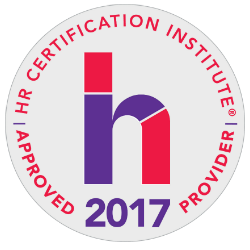|
25October |
EVENT DATETuesday, Oct 25, 2016 |

|
PRESENTER(s)Susan Fahey Desmond |

|
Any TimeDuration : 90 Minutes |
|
This program has been approved for 1.5 PDCs |
“The use of this seal confirms that this activity has met |
Event Material
Training Description
“With the amendments to the ADA, the issue of what is a ‘reasonable’ accommodation is being addressed more and more frequently. Given that ADA cases are tried to a jury, an employer’s failure to take this obligation seriously will inevitably lead to costly litigation.”
Every employer is by now familiar with the phrase, “You must provide reasonable accommodation to qualified individuals with a disability so that the individual is able to perform the essential functions of the job.” But how do we determine what is “reasonable”? With the passage of the Americans with Disabilities Amendments Act, more and more individuals meet the definition of “disability,” and employers are having to address accommodation requests and whether these requests are reasonable. The issue is made even more complicated by the fact that what is reasonable for one company would not be considered reasonable for another company. In this webinar, we will walk you through how to engage in the interactive process, what conduct triggers the interactive process, and how to evaluate whether an identified accommodation would be reasonable and, therefore, required under the ADA.
Learning Objectives:
- How the courts are applying the liberal interpretation to impairments – what has been found to be a disability and what hasn’t?
- When your duty to engage in the interactive process is triggered.
- The employee’s duty to “request” an accommodation – what does this mean?
- What types of accommodations have the courts found to be reasonable?
- What types of accommodations have the courts found to be an “undue hardship” for the employer?
- How to determine if the employee can perform the essential functions of the job – what are “essential functions” anyway?
- Why a requested leave of absence under the ADA creates an entire minefield – particularly if the employee is on workers’ compensation or FMLA.
- Light duty requests and the ADA
- Is pregnancy now a disability under the ADA requiring accommodations
Who will Benefit:
All public and private entities; company owners; human resource professionals; benefits and leave specialists.
| Training Format |
Industry |












